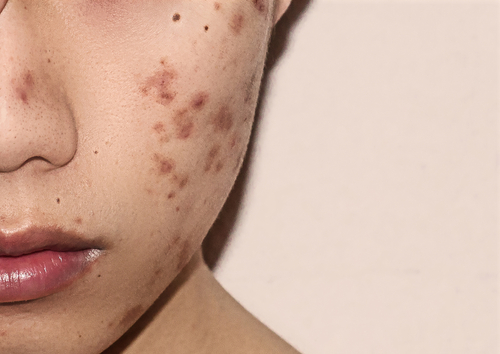Introduction to Non-Invasive Acne Scar Treatment
Non-invasive Acne Scar Treatment refers to procedures that do not require surgical intervention. These techniques have gained popularity due to their effectiveness and minimal downtime, making them suitable for individuals seeking scar improvement without significant disruption to their daily lives.
Understanding Acne Scars: Types and Causes
Before delving into treatment options, it's essential to understand the different types of acne scars and their underlying causes. Acne scars can manifest as atrophic, hypertrophic, or keloid scars, each requiring specific approaches for optimal improvement.
Importance of Non-Invasive Techniques
Non-invasive techniques offer several advantages over invasive procedures. They are generally safer, with reduced risks of complications such as infection or prolonged recovery periods. Additionally, non-invasive treatments often yield noticeable results with minimal discomfort.
Popular Non-Invasive Acne Scar Treatments
Microdermabrasion
Microdermabrasion involves exfoliating the skin's surface using fine crystals or a diamond-tipped wand, promoting collagen production and reducing the appearance of scars over time.
Chemical Peels
Chemical peels use specialized solutions to remove damaged outer layers of skin, revealing smoother, rejuvenated skin underneath. They can effectively address mild to moderate acne scarring.
Laser Therapy
Laser therapy targets scar tissue with precision, stimulating collagen production and promoting skin renewal. Different types of lasers may be used depending on the scar type and skin condition.
Microneedling
Microneedling utilizes tiny needles to create controlled micro-injuries, triggering the skin's natural healing process and collagen production. It is particularly beneficial for improving texture and reducing scars.
How Non-Invasive Techniques Work
Non-invasive treatments work by stimulating collagen production, promoting cell turnover, and reducing pigment irregularities, leading to smoother and more even-toned skin. These techniques target scar tissue while preserving surrounding healthy skin.
Benefits of Non-Invasive Acne Scar Treatments
- Minimal downtime: Patients can resume normal activities shortly after treatment.
- Reduced risk: Non-invasive procedures have lower risks compared to surgical options.
- Versatility: Non-invasive techniques can address various types of acne scars.
- Natural results: Results appear gradually, enhancing the skin's appearance naturally.
Considerations Before Choosing a Treatment
Before undergoing non-invasive treatment, it's crucial to consult with a dermatologist to determine the most suitable approach based on skin type, scar severity, and individual goals. Factors such as medical history and lifestyle should also be considered.
Personalized Non-Invasive Treatment Plans
Dermatologists often tailor treatment plans to each patient's unique needs, combining different techniques for optimal results. This personalized approach ensures that individuals receive the most effective and suitable treatments for their specific concerns.
Success Stories: Real-Life Experiences
Many individuals have experienced significant improvements in their acne scars through non-invasive treatments. These success stories highlight the transformative impact of modern dermatological techniques on skin appearance and confidence.
Future Trends in Non-Invasive Acne Scar Treatments
As technology continues to advance, we can expect further innovations in non-invasive acne scar treatments. Emerging techniques may offer even more precise results, shorter recovery times, and enhanced patient satisfaction.
Conclusion
Non-invasive Acne Scar Treatment in Riyadh has revolutionized skincare by providing effective solutions with minimal risk and downtime. By understanding the various techniques available and consulting with qualified professionals, individuals can embark on a journey towards smoother, scar-free skin and renewed confidence.






Comments